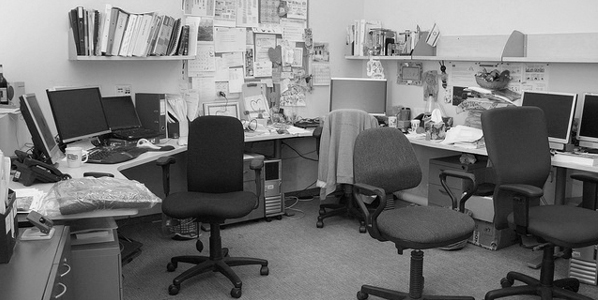Making flexible work the norm, not the exception
The Office for National Statistics (ONS) has just announced that 3 million people in the UK consider themselves underemployed, so it may seem strange for me to argue that what the country really needs is more part-time and flexible working...
The Office for National Statistics (ONS) has just announced that 3 million people in the UK consider themselves underemployed, so it may seem strange for me to argue that what the country really needs is more part-time and flexible working opportunities.
Of course, underemployment at the lowest end of the income spectrum should rightly concern us. Businesses, particularly in the small and medium enterprise (SME) sector are understandably wary about offering more hours to staff in such an uncertain economic climate, but policymakers need to counter the corrosive effects of low job security to the economy and society in general. A permanently underemployed and vulnerable section of society should not become just another element of the ‘new normal’ economy we are all adjusting to.
Higher up the income chain, however, flexible and part-time work is a great enabler. It can increase the absolute number of job openings, improve work-life balance and help mothers return to work. Despite a growing numbers of employers recognising the benefits it has to them – many businesses report increased productivity and loyalty – lack of quality part-time work is proving to be the most common complaint from those giving evidence to the business, innovation and skills committee’s current inquiry into women in the workplace.
Evidence submitted to the committee reported that, despite the public sector’s relative progress in gender equality, new jobs are rarely advertised as being available as a part-time or job-share. In the private sector, where lack of transparency in recruitment is more pronounced, it is even harder for women to discuss part-time or flexible working when starting a new job. In each of the past five years, employment tribunals show a gender imbalance of between three and five times as many women than men having complaints regarding requests for flexible working heard and accepted.
It’s unsurprising that more women are taking their cases to tribunals – they are still far more likely to take care of children or elderly parents and need the flexibility. But we shouldn’t overlook the growing numbers of men who also want these options so that they can play a greater role in their family’s lives. The charity Working Families recently told the committee that men are more likely to work part-time ‘under the radar’ by agreeing terms unofficially so as to avoid being seen as lacking commitment to their career. The need for women to work part-time, following maternity leave, for example, is more immediately obvious, and the persistence of the gender pay gap is testament to this.
So what we really need to see is a cultural shift to show that is perfectly acceptable for an ambitious professional to be able to work flexibly or part-time at some point in their career to balance work and family life. Then we need employers to offer consistently family-friendly employment policies that make such a shift possible. The long hours, ‘presentee’ culture of many industries will be slow to change, but the benefits of happier and more loyal workers will soon be felt by businesses who can lead by example and drive real change across the sectors.
There are a great many more arguments for flexible and part-time working. After all, work, like any other useful commodity, should be shared around equitably and fairly when it’s available. It makes no sense for 2.5 million people to be unemployed while the rest of the country continues to work some of the longest hours in the EU. Some thinktanks, such as the New Economics Foundation, have even advanced compelling arguments for reducing the working week to four days to better share the work available in the economy but with too many workers stuck on low paid insecure work that aspiration is unlikely to be attractive. For now, however, change needn’t be radical. Small shifts in the culture and habits of UK workplaces to make part-time and flexible working the norm and not the exception could have a transformative effect on both social mobility and gender equality in work.
